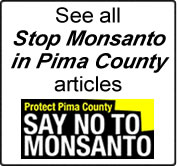Watch Out for the High-Fructose Corn Syrup Name Switch
by Melissa Diane Smith
Religiously avoiding foods that contain high-fructose corn syrup? You’ll also need to watch out for foods that contain corn sugar, a change in name that appears to be coming and means the same thing.
So many people have gotten wise to the health dangers of high-fructose corn syrup (which increases the risk of metabolic syndrome, heart disease and type 2 diabetes) that Americans’ consumption of high-fructose corn syrup (HFCS) has fallen to a 20-year low. The Corn Refiners Association apparently isn’t happy with this trend, so in mid-September, it applied to the federal government for permission to use the term “corn sugar” for the sweetener on food labels.
As the Associated Press reported:
The Food and Drug Administration could take two years to decide on the name, but that’s not stopping the industry from using the term now in advertising.
Renaming products has succeeded before. For example, low eurcic acid rapeseed oil become much more popular after becoming “canola oil” in 1988.
Many food manufacturers are starting to replace HFCS with refined sugar. Unfortunately, just as high-fructose corn syrup is made from corn, the vast majority of which is genetically modified, the majority of beet sugar grown in the U.S. is GM as well. And sugar also increases the risk of heart disease.
HFCS has another danger to it, though. Last year studies found that at least half of commercial HFCS contains high levels of the toxic metal mercury because of the chemical refining process used to make it. Nearly a third of the HFCS-containing breads, cereals, sodas and other consumer foods tested as part of the study showed up containing mercury. (See my story on that here.) So, whether it’s called high-fructose corn syrup or corn sugar, be sure to avoid it. But don’t switch over to lots of white sugar in its place. That, as I have explained in my books, is a killer ingredient as well.
Copyright © 2010 Melissa Diane Smith
